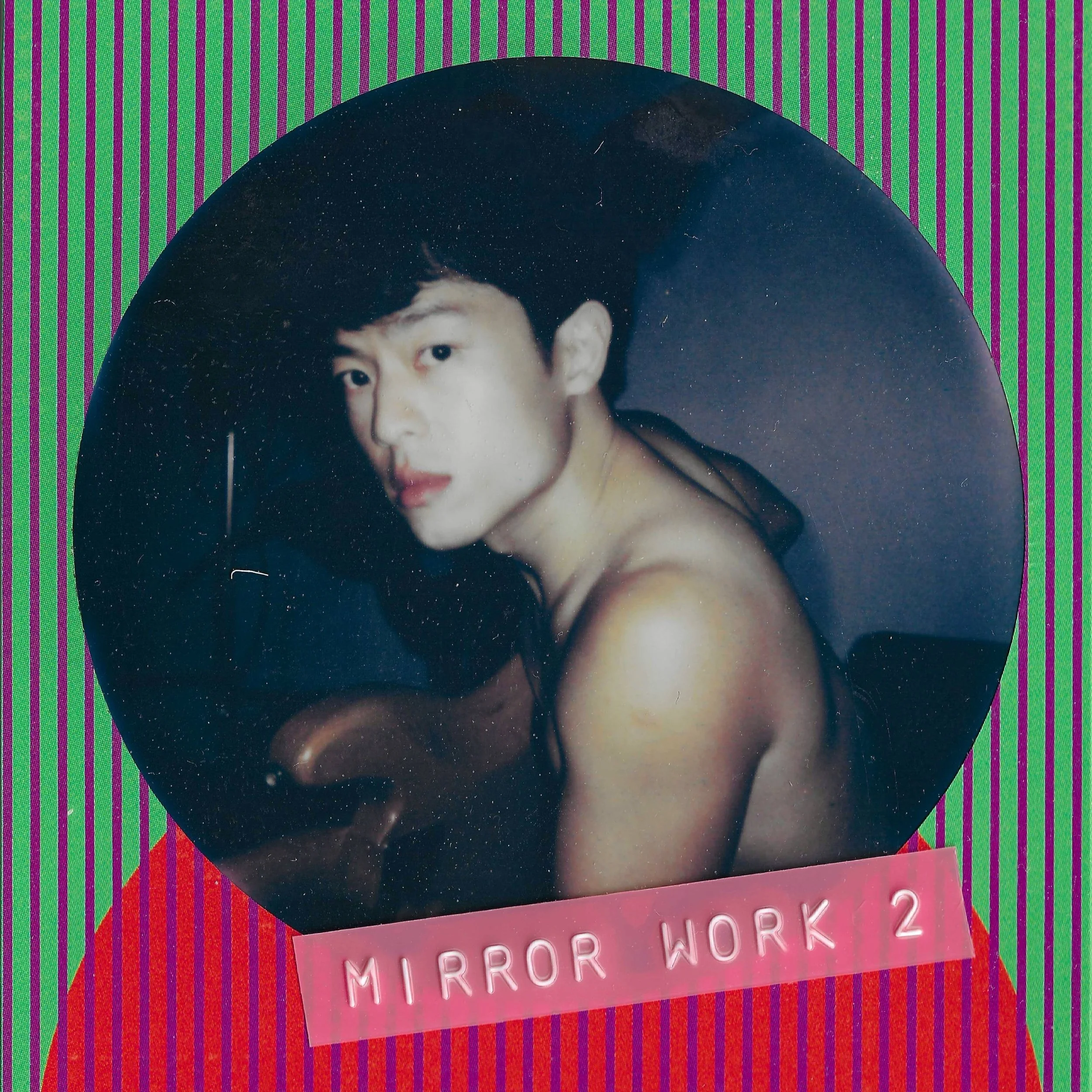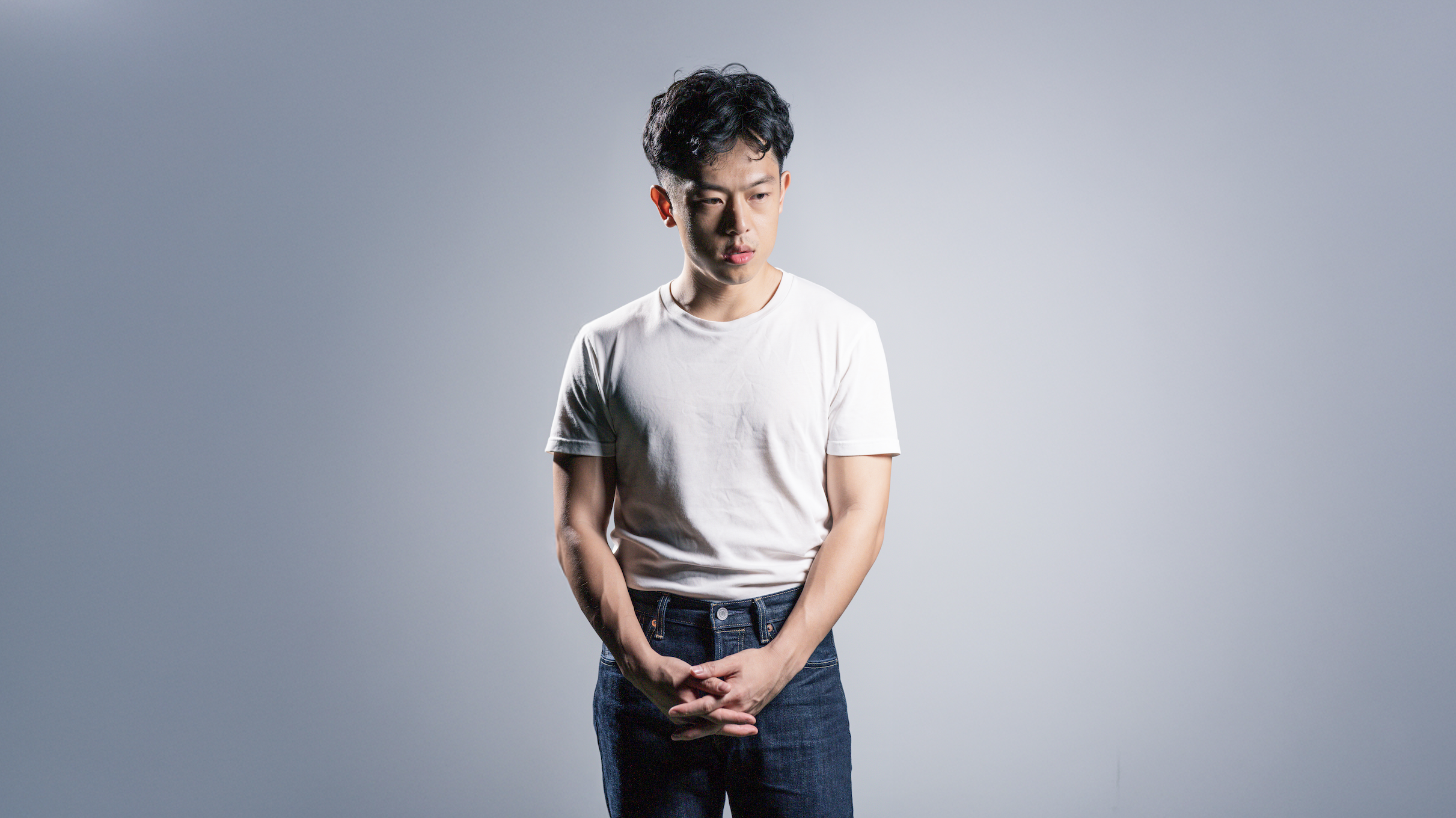The Infinite Joy and Wisdom of Dru Chen’s Sequel to ‘Mirror Work’
Dru Chen has spent a lifetime trying to embody self-acceptance. His new album details the work it took to get there.
Dru Chen by ihasamic!
In 2019, Dru Chen released the album Mirror Work. He was a year away from turning 30 and nearly a decade into a career that had begun with the release of Intentions, a bluesy project that spawned two singles that brought him international acclaim. Chen has always been an artist who takes a scholarly approach to music and Mirror Work wore its inspirations on its sleeves. The sounds of Prince, Jeff Buckley and D’Angelo were abundant on the album, but so was a need for introspection.
“I wanted to go a lot deeper into the Funk/Soul, and Rhythm and Blues sound, which was very important to me in college, while at the same time evoking the singer-songwriters like Jeff Buckley which I grew up idolizing as a teenager,” Chen told me recently. “This duality showed up a lot in my songs and arrangements, as I dug deeper into the family-tree of musical influences.”
Chen was also on a personal journey while creating Mirror Work. He had recently been diagnosed with generalized anxiety disorder and had been making headway in working through anxious attachment. The album’s lyrics touched on all of these themes: the love we look for in all types of relationships, the hard work it is to be a better human, and the tension that comes from anxiety and depression.
“Every path of inspiration led me to new musical discoveries. These fascinations along with my journey in self-work and therapy in order to push past the various relationship and work-related struggles I faced,” Chen said, “led me to create Mirror Work.”
Together with his management team at the time, The Black East, Chen pitched Mirror Work to Warner Music Singapore “and to our delight, they signed me to a management deal to put out the album,” he said. The team achieved some big wins with Mirror Work too, including sync licensing deals, festival appearances and high-profile, artistic music videos. “I independently produced a short run of Vinyl LPs, and we sold it out in our local record stores, which was a dream come true,” Chen added.
Six years later, Chen is turning the mirror on himself again. In June, Chen released Mirror Work 2, a sequel that digs deeper into the initial themes of introspection, intimacy and self-love. Some of his most uplifting work appears on the new album, including “Everyone Is A Star” and “Shades Of You”. But there are also, he told me, darker themes at play here. On tracks like “Not Bad Is Not Good Enough”, Chen examines the dynamics within toxic relationships, as well as sexual polarity and the tensions of human relationships (“The Waves”, “In The Water”).
“Writing the song Mirror Work 2 was like creating a soothing balm of self-acceptance and emotional regulation. I felt a sense of universal love and expansion which was quite trippy and emotional for me,” Chen reflected. “Warts and all, like life itself. It felt so good to hear the final mix.”
ihasamic!
The initial bones of Mirror Work 2 came together immediately after Chen finished work on his third album Slower Life. That project brought Chen his widest audience yet with tracks like “Summertime” gaining over 2 million streams and Chen experimenting with the brightest R&B sounds of his career.
Yet Chen was eager to go deeper and to take inventory on his past like never before. “Our A&R and distributor Joel Tan from Yung Lee Records presented this challenge for me to create a body of work as deeply personal as Mirror Work with all the techniques and life experience I had gathered in the 6 years that passed,” Chen explained.
While the cover of the first Mirror Work is a simple shot in black and white of Chen seated at the piano, lost in the act of making music, the sequel is more conceptual. This cover features a polaroid of Chen staring directly at the camera with mixed media art surrounding it. Chen credits Tan, who also served as a creative director for the album, as coming up with the concept.
Artwork for Mirror Work (left) and Mirror Work 2 (right)
“The polaroids evoke imperfection and perhaps a journalistic or even slightly voyeuristic feeling,” Chen explained. “I wanted vulnerability to show up not only in the songs but also in the visuals; to be able to connect with me and in-turn feel safe enough to connect with one’s inner chaos and burdens.”
Chen also pulled together a lengthy list of collaborators for the project. Gentle Bones, who served as an important partner on Slower Life, returned for lead single “Make It Alright”, while Chok Kerong who worked on the string quartet arrangement on “Slumber” for the first iteration returned on B3 organ for “These Chords Will Do”. But Chen also pulled in Nathan Hartono, Haneri, Joanna Dong, Marian Carmel, Heema Izzati, Thaarmin, Will Beale, and Aynsley Green for different, versatile features.
“It was important for me to have a wide range of sounds,” Chen explained when I asked why he chose to have so many different collaborations. “I love albums with depth and variety, and if I had written the whole album with my singular voice or point-of-view, it would be one-dimensional, and that was unacceptable to me.”
One of my favorite collaborations on the album is with Joanna Dong on “In the Water”. The track is the first time Chen has sung in Mandarin on record and Chen called it an honor to “witness the genius and artistry” of Dong firsthand. “It is unbelievably special, deep and emotive to me to feel her poetry and articulation of a complex notion,” he stated.
While writing the track, Chen was inspired by the book “The Way of the Superior Man” by David Deida which examines sexual polarities and sees it as a “sister track” to “The Waves”. Chen remembered the spiritual and sexual growth he was seeking while writing the music and sees “a whole world to tap into in terms of energy and polarity,” he said, and continued. “I’m only at the beginning of this journey, but my songs seem to reflect the books I read or the practices I’m adopting.”
A central theme of the Mirror Work albums, though, is the relationships we have with ourselves. What Chen has learned, throughout therapy and years of practice, is that “love is a verb.” It is an action and a choice that he makes daily. “Giving love requires one to shed their own layers of smokescreens and deceit – to cleanse the doors of perception, so to speak,” he said. “When my heart is self-full, I can see others and treat them for who they truly are.”
Chen points to “Everyone Is A Star” as a song that not only best depicts this, but is also a defining song in his catalogue. “It sums up everything I believe in philosophically and musically. I cried when I wrote the chorus ‘all you ever wanted to do was just dance to the song in your heart/all you ever wanted to feel was your chance – everyone is a star’,” he said.
Writing the track also allowed Chen to reckon with why self-love may not have been taught to him from a young age. Chen, like me, is a millennial who was born in 1990 and came of age at a time when vulnerability was never talked about amongst men. Chen, who was born in Australia, struggled with feeling attractive or seen amongst his white peers.
“It was healing for me to work on my self-esteem,” he said. “I notice I put a lot of pressure on myself to perform, be it at work or in relationships – the unconditional self-love aspect is something that tends to be lacking in certain Asian cultures, no doubt something I had to work on.”
If these sound like heavy lifting for an album opener, know that Chen has never shied away from mixing darker matter with uplifting music. Chen told me that he drew heavily from Prince’s Dirty Mind album while working to build a sound that is still contemporary and accessible. “Everyone Is A Star” is also an important track because, as Chen noted, he plays all of the instruments (drums, bass, guitar, and piano) with the exception of a feature synthesizer solo by Aynsley Green.
Listening to it now, Chen said that he realized how universal the music’s message is. “I wrote this song as a balm for those losing touch with their inner voice and belief,” he added.
ihasamic!
When Chen listens back to the original Mirror Work, he can hear the differences from the chaos of his twenties to the man he is today. “Internally, I’m learning how to navigate and regulate emotions better,” he told me. He meditates daily and practices mindfulness. He listens to his body and his emotions more. He’s kinder and more understanding of himself.
But he also sees a growth in his understanding of the industry. What excites Chen now is “trying to find mutual alignments in order to birth exciting projects and collaborations.” He’s deeply interested in how these goals can be aligned using music and sound to enhance therapy or healing.
The meatiest parts of Mirror Work 2 come from the hard-earned wisdom that experience gives us. There is a poignancy in Chen’s exploration of self-love, especially as an Asian man who is learning to be more vocal about his vulnerabilities – something that, he acknowledges, is rarely taught to men growing up.
You can hear this on tracks like the album’s tender closer “Make It Alright”, which Chen calls a “coda or encore” track.” The lyrics chronicle Chen attempting to save a relationship that has hit a rough patch. The message is centered around teamwork, to be sure, but I also hear a deeper message of an inner-resilience. “Ain't giving up, despite the pressures I feel building,” he sings in the first verse. “Just know that I have fallen many times and it won't bring me down.” Make It Alright” was the first single Chen released for the project; ending it on the first single, he told me, brought the album into a full circle moment. “Reprising the message with ‘Make It Alright’ felt perfect to me,” he said, “to end on a comforting, harmonious and soothing note.”
But the emotional core, as I see it, of Mirror Work 2 is how Chen approaches writing about self-acceptance.
“I’m a proud 35. I used to get anxious about turning 30, considering the superficial vanity and image consciousness in the arts and entertainment industry,” he said. “Now I’ve made it a conscious point to accept hard-earned grey hairs and wrinkles. I’m also leaning into natural hair, which is a tricky one because so much of my vibe in the past has been the permed and elevated hair. I’m thankful for what my parents gave me genetically, and coming to terms with the deficiencies and insecurities - I didn’t like the way I looked much of my growing up years - as a Chinese person in a Caucasian country, among other things - it’s been a process.”
What excites Chen these days is enjoying the process of making music – and living life. He is no longer worried about what success in music means. He is, all things considered, satisfied with where he’s at now: as a professor and mentor to students; as a husband learning how to love well; as a musician who is still able to share his art with thousands of listeners and fans.
“I think what I’ve learnt is to work towards being in the present moment, accepting circumstances as a pathway towards something greater and more aligned in the future,” he continued “I do the work every day and make intentional choices but detach from the outcomes and prepare myself to make adjustments.”
Chen finds it too hard to nail down what emotion he hopes listeners take from the album. But I offered one word that I felt was “joy”.
“I love that Mirror Work 2 gives you that feeling, and it would mean a lot to me if most people resonated with that too,” Chen told me.
“Another word that comes to mind is the Japanese notion of ‘ganbatte’,” he added, “to do your best. I hope this music inspires listeners to carry on and trust in their inner instinctive voices. May the heart expand in its infinite wisdom.”




![Mirror Work [LP] - Artwork Front_no jap1.png](https://images.squarespace-cdn.com/content/v1/623a2fb8abca543f34ac1c9b/1755193636759-DT83I9IENO21IH7FSVGX/Mirror+Work+%5BLP%5D+-+Artwork+Front_no+jap1.png)

